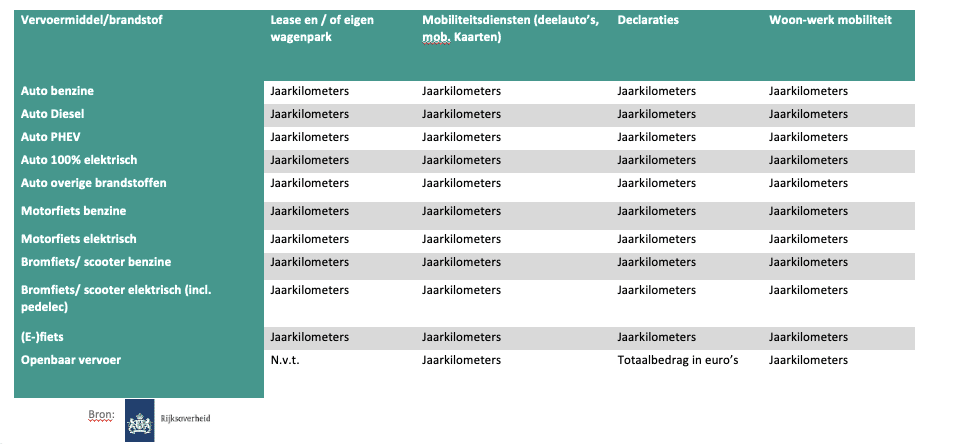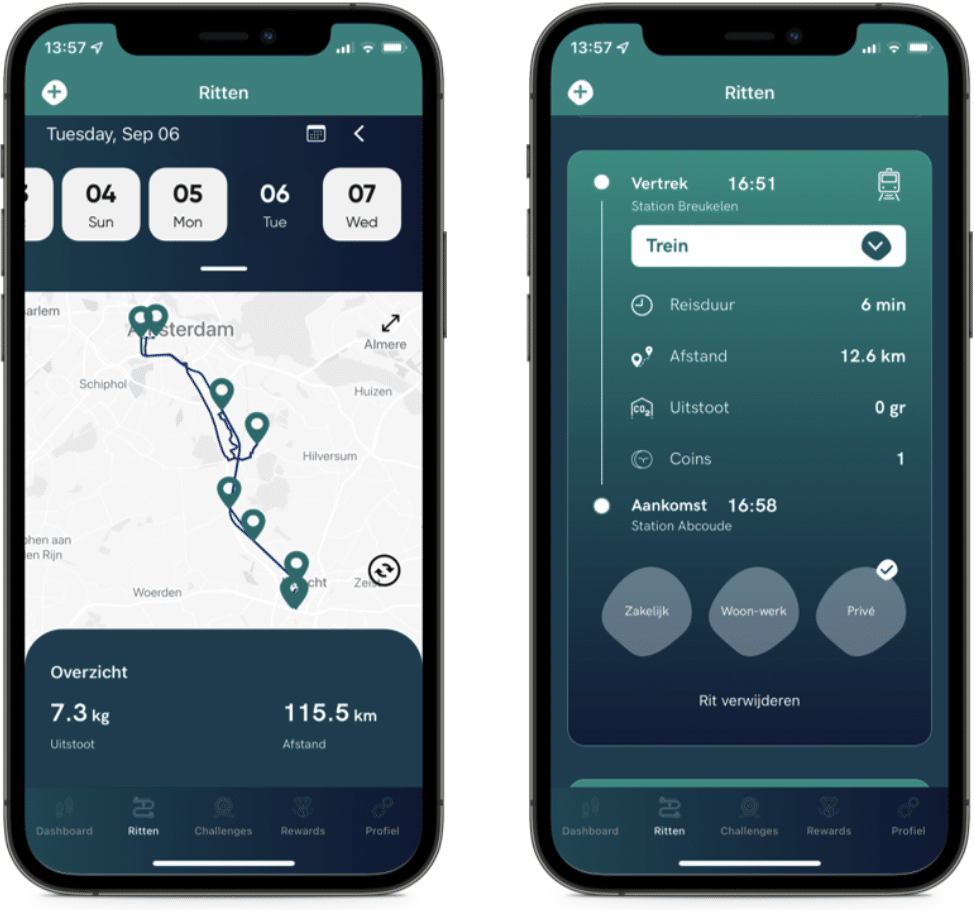Update! The name of this regulation has been changed to:
Reporting Requirement Work-related Mobility of Persons
As of July 1st, 2024, employers with more than 100 employees are required to provide annual data on employee commuting and business-related travel. The goal is to save 1 megaton (Mton) of CO2 by 2030. Fynch puts this mandatory CO2 reporting on autopilot.

What is the Normative Regulation Work-related Mobility of Persons?
Employers have a great influence on the CO2 emissions caused by work-related mobility. Due to the Decision on CO2 Reduction Work-Related Mobility, employers who employ 100 employees or more will be required to provide annual data on this mobility from July 1st, 2024. This is the reporting requirement.

Which data do I have to report?
For each means of transportation/fuel type, all kilometers divided into commuting and business must be provided. This applies to both private cars and leased cars.
Before July 1st, 2024, make sure you are able to comply, we are happy to help you with this.
CO2 reporting. Fynch makes it easy.
- Standard survey tool
- Various data sources
- Time consuming
- Error prone
- No insight into CO2
- Privacy risk
- User-friendly tool
- One central data source
- Completely outsources
- High data quality
- Insight into travel behavior and CO2 footprint
- Guaranteed privacy and security

Normative regulation app
Our mobility app registers the CO2 emissions of all your employees on a daily basis. The Fynch App supports the employee daily in registering and declaring business trips, commuting trips and work-from-home days. This saves employees a lot of time and aggravation.
Comply to the Reporting Requirement in 3 steps

Employees are invited to login to the Fynch WPM Survey tool. They create their own profile and add their vehicles / modalities. We support SSO via Google and Microsoft.

The intuitive calendar function makes submitting daily commutes a breeze. Within minutes employees have registered what is needed to comply with the CO2 reporting requirement.

The employer receives insight into CO2 emissions and other mobility KPIs on an aggregated and anonymized level. The reporting meets the requirements of the Reporting Requirement Work-related Mobility of Persons.

Comply with the Normative Regulation Work-related Person Mobility.
Starting July 1st, 2024, as an employer (with more than 100 employees), you are required to register and report your employees’ CO2 emissions. Fynch simplifies this for you.

Reimburse travel and work-from-home expenses in accordance with fiscal laws
No longer disburse fixed, untaxed travel expenses. Reimburse only the actual kilometers traveled and work-from-home days. Monitor CO2 emissions per business kilometer for the Normative Regulation Work-related Mobility of Persons.
Automate registration of CO2 emissions related to mobility
Save yourself and your workforce time and easily meet CO2 reporting requirements.
Happy customers
Client cases

...is supported by Fynch through its innovative mobility platform in achieving the objectives of the new mobility scheme.
View this case
...ultimately found that Fynch offered the most options to meet the needs of our diverse workforce, from mechanics to managers.
View this caseWe are here for all your questions about the Normative Regulation Work-Related Person Mobility.
The NRWP is part of the Dutch Climate Agreement concluded in 2019. About 27% of all CO2 emissions are caused by mobility, and more than half of that is accounted for by employers. This regulation aims to achieve a reduction of 1 megaton of CO2 by 2030.
- Companies in NL with 100+ employees
- Employee: Minimum 20 hours of paid work (including seasonal)
- Excluded: Temporary workers, volunteers, on-call workers (o-hours)
- Multiple establishments: sum up
- Reference date employee count: July 1st of the reporting year
- Only yellow license plates, mopeds, motorcycles, public transport and (e-)bike.
- Only business and commuting kilometers
- Have information in order by July 1st, 2024
- Submit data for 1 July 2024 – 31 Dec 2024 by 1 July 2025 at the latest
- Afterwards always report before 1 July of the following year via the website portal of the RVO
- 2025 benchmark joint emission ceiling. This may be followed by a standard for CO2 emissions per km.
In brief, all kilometers per mode of transportation/fuel type must be divided into commuting and business kilometers. This applies to both private cars and lease cars.
Make sure you can deliver this before July 1st, 2024, we are happy to help you with this.




